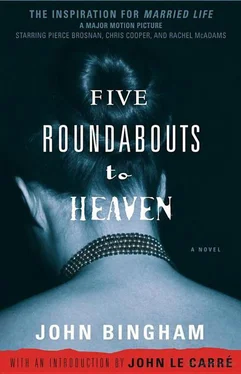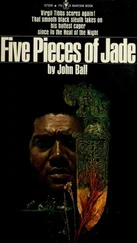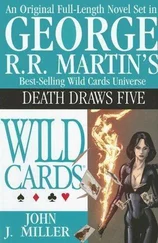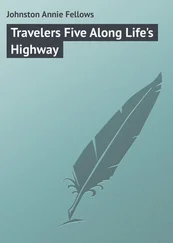John Bingham - Five Roundabouts to Heaven
Здесь есть возможность читать онлайн «John Bingham - Five Roundabouts to Heaven» весь текст электронной книги совершенно бесплатно (целиком полную версию без сокращений). В некоторых случаях можно слушать аудио, скачать через торрент в формате fb2 и присутствует краткое содержание. Жанр: Криминальный детектив, на английском языке. Описание произведения, (предисловие) а так же отзывы посетителей доступны на портале библиотеки ЛибКат.
- Название:Five Roundabouts to Heaven
- Автор:
- Жанр:
- Год:неизвестен
- ISBN:нет данных
- Рейтинг книги:4 / 5. Голосов: 1
-
Избранное:Добавить в избранное
- Отзывы:
-
Ваша оценка:
- 80
- 1
- 2
- 3
- 4
- 5
Five Roundabouts to Heaven: краткое содержание, описание и аннотация
Предлагаем к чтению аннотацию, описание, краткое содержание или предисловие (зависит от того, что написал сам автор книги «Five Roundabouts to Heaven»). Если вы не нашли необходимую информацию о книге — напишите в комментариях, мы постараемся отыскать её.
Five Roundabouts to Heaven — читать онлайн бесплатно полную книгу (весь текст) целиком
Ниже представлен текст книги, разбитый по страницам. Система сохранения места последней прочитанной страницы, позволяет с удобством читать онлайн бесплатно книгу «Five Roundabouts to Heaven», без необходимости каждый раз заново искать на чём Вы остановились. Поставьте закладку, и сможете в любой момент перейти на страницу, на которой закончили чтение.
Интервал:
Закладка:
I got up and walked over to the window and stood looking out into the darkness. The wind had risen, and the trees were tossing against the night sky. I thought that in three hours, perhaps less, Bartels would be no longer with Lorna. Kissing her and fondling her. Pawing her. Mouthing phrases like a lovesick youth. Kissing her…kissing her…kissing her again. The wave of jealousy mounted higher and higher inside me.
I clenched my fists in my trouser pockets, and swung round again to Beatrice and John.
“I don’t think there is the slightest chance that he would marry again,” I said loudly and harshly. They thought, no doubt, that I sounded stern because I was concerned about Bartels’ well-being. Poor simpletons!
He came back about 9.30 that evening: Philip Bartels, my friend. Beatrice was very nice to him, and he was very nice to her.
He was glad to see me, too. He said so.
I didn’t know that in an inside pocket of his overcoat was a bottle marked ASPIRINS, that it had been there for some days, or that the contents bore not the slightest resemblance to aspirins.
Chapter 12
I shall always remember that Saturday, because as it turned out it was the last day which Philip and Beatrice Bartels and I spent together.
I did not know that, of course, and there was nothing to indicate it. It began as one of those days which make you think that winter is past, and that spring is not very far ahead; the sun shone out of a brittle blue sky, dazzlingly bright, and the sprinkling of frost on the lawn sparkled and danced in the pale, intense light.
I always sleep with the windows partly open, but when I got up that morning, I opened them wider still, and looked out, and breathed in deeply and felt glad to be alive.
The air was cold, and as I was not even wearing a dressing gown, it penetrated quickly to my skin, and raced over my face and neck and chest, yet left behind no feeling of chill, but rather a tingling, invigorating feeling as though I had been massaged.
It was quite late, past nine o’clock, for the Bartels took things very easily at weekends, as is right and proper, and we usually wandered down for breakfast at about a quarter to ten.
A robin fluttered down on to the lawn, hopped a few paces and stood listening. Somebody, presumably Beatrice, was moving about in the kitchen handling crockery.
The air was very still; so still that when the dog Brutus wandered out of the French windows below me, I picked up the sound as his heavy body disturbed the pebbles on the path.
The dog Brutus moved slowly on to the lawn, took a few paces and stopped, and stretched, his forelegs thrust out before him, tensing his hind legs in turn. The robin took no notice, as though aware that so old and heavy a body was incapable of sudden and dangerous attack.
The dog lowered his head to the ground, and sniffed, and then raised his half-blind eyes to the sun; his head moved slowly from side to side, as though he were trying to discern the source of the rays which were warming his body. He took a few more steps, and stood uncertainly looking across the lawn to where the vegetable garden lay.
“Brutus!” I called. “Hello, Brutus, boy!”
The dog took no notice, so I called louder: “Brutus! Hello, boy!”
The dog turned his heavy head and peered in the direction from which my voice had come. His stump of a tail moved gently from side to side, then he turned his head away and continued to gaze down the garden.
I thought: He is so old now that he does not much care whether human company is around or not; he is a half-numbed entity, for whom the hours and the days bring either warmth and comfort, or cold and discomfort; either food and satisfaction or vague stirrings of hunger and restlessness.
Men come to it, like dogs: but men have their memories to amuse and comfort them, or to torture and plague them. Memory is a mixed blessing. Time soothes most of the wounds of the past, but the ugliest remain unhealed; perhaps they are even exacerbated by the play of the imagination. Dogs don’t suffer like that. Dogs die easy deaths, devoid of hopes or fears. It’s a consolation for having to eat the half-cold remains from people’s plates, I thought.
I closed the window, and bathed and dressed, and went down to breakfast. Beatrice and Barty were already at table, reading the newspapers. There were boiled eggs for breakfast, two each, for Beatrice, efficient as ever, had good local contacts.
We did not talk much. I think that each of them was conscious that I shared his or her secret that bright February morning. As for me, I was merely concerned that neither should discern the true feelings of the other.
Of the two, as I thought even then, Beatrice was the finer character; she had made her bargain, married without being in love; but having made it she was going to keep it, even though it nearly broke her heart to do so.
Not so Philip Bartels. Unless I could prevent it, he was going to break what he considered to have been a bad bargain, and marry Lorna.
Such being the case, I had to take swift action in two directions. I had to consolidate the position in regard to Beatrice and John O’Brien, and I had to see Lorna Dickson and strengthen the idea that it would be wrong of her to take Bartels from Beatrice.
Yet all my plans were put in peril in a most unexpected way that same morning.
To begin with, everything went according to plan. After breakfast, Bartels went out into the garden to fix a piece of trellis-work that had come loose in the night, and I offered to help Beatrice with the washing-up.
Beatrice washed the things. I dried them. At first we did not speak; each knew the subject which lay uppermost in the other’s mind; each was reluctant to broach the subject, or perhaps Beatrice, like myself, did not know how to start.
At length, as I was drying the last few knives, I said abruptly:
“I have thought some more about you and John.”
“What have you thought?”
She turned her head and looked at me anxiously. I did not know whether she was hopeful that I might have changed my mind, in order that she could have some moral backing for reconsidering the problem herself, or whether, having now reconciled herself, she was fearful lest I put up arguments which would cause her to weaken.
“I think that you and John are well suited to each other, but I am not at all certain that one can build happiness upon the unhappiness of somebody else.”
“I suppose not,” she said. “I suppose you’re right.”
“Some people could, but not you, Beatrice dear. Not a person with your burden of conscience.”
“No.”
She wiped her right hand on her apron, and then pushed some hair back from her forehead. The blood had mounted to her head, and her lower lip was trembling. She raised her hand again, and brushed it across her eyes.
“I wish I could advise you otherwise. I would willingly sacrifice Barty, if I thought that you and John would be happy.”
She stood at the sink, saying nothing, cleaning a small glass marmalade dish with a small mop, pushing the mop round and round.
“John might be happy,” I went on, “but not you, Beatrice dear. Your thoughts would go out to Barty, all the time, souring everything. Perhaps even embittering your relationship with John.”
The winter sunlight shone through the little window, touching her beautiful red hair. Once, she looked quickly at me and tried to smile, and I saw the tears in her eyes. She nodded her head, with that quick little trembling smile, and bent over the sink again. And all the time, forgetful of what she was doing, she continued to push the little mop round the marmalade dish.
For a moment, despite my resolution, I felt sick at heart, not merely at her heartbreak, but at my own treachery.
Читать дальшеИнтервал:
Закладка:
Похожие книги на «Five Roundabouts to Heaven»
Представляем Вашему вниманию похожие книги на «Five Roundabouts to Heaven» списком для выбора. Мы отобрали схожую по названию и смыслу литературу в надежде предоставить читателям больше вариантов отыскать новые, интересные, ещё непрочитанные произведения.
Обсуждение, отзывы о книге «Five Roundabouts to Heaven» и просто собственные мнения читателей. Оставьте ваши комментарии, напишите, что Вы думаете о произведении, его смысле или главных героях. Укажите что конкретно понравилось, а что нет, и почему Вы так считаете.












